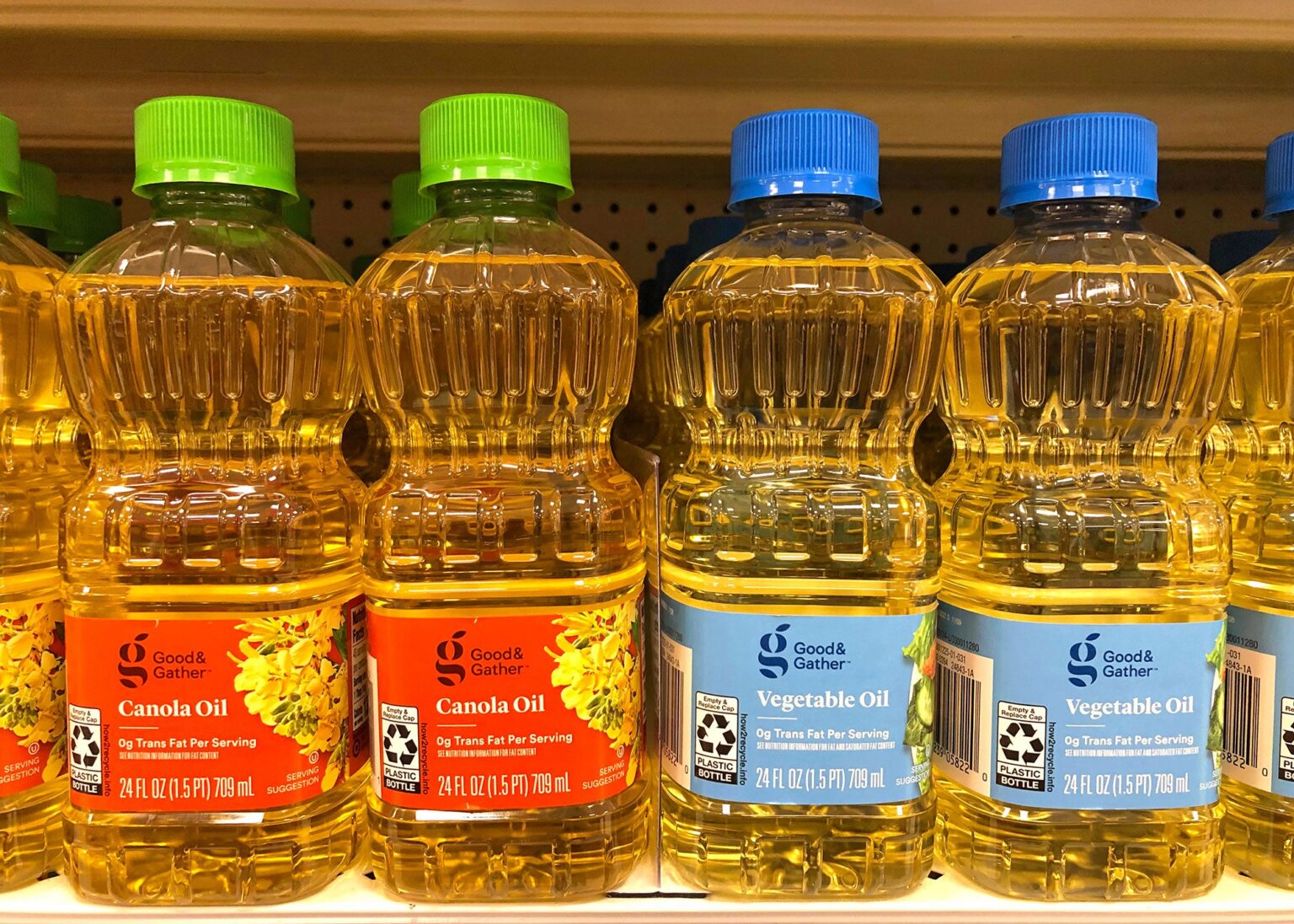Let’s talk about seed oils. The topic seems to ignite an immediate reaction — one that’s often loud, accusatory, and frankly, devoid of substance. It seems that the minute I share a balanced, science-backed opinion on seed oils — something as simple as, “Hey, maybe these oils aren’t inherently evil” — the internet erupts with a familiar chorus:
“OMG, how much are you getting paid?”
“Shill!”
“She’s sponsored by Big Seed Oil!”
Let’s pause right there.
If the only counterargument someone can offer is “you must be getting paid,” that’s not a legitimate position. That’s a conspiracy theory. If you truly believe seed oils are harmful, then the proper way to respond is with real evidence. Bring forward peer-reviewed research. Share credible sources. Point to expert dietitians, food scientists, or chemistry — people who study lipid oxidation, refining processes, and human health outcomes for a living.
Because here’s the thing: Yelling “shill” at someone doesn’t make your argument stronger. It makes it weaker. It shuts down meaningful discussion and reveals a lack of confidence in your own position. It’s a way to deflect, not debate.
And while we’re on the subject of who’s supposedly “getting paid,” let me offer you a counter-question: Who’s funding the anti-seed oil hysteria? We never seem to question the other side, do we? We don’t ask what financial interest might be behind influencers who demonize seed oils while promoting their own supplements, books, or meat-based diets. Why is it that when someone defends a mainstream food ingredient, they must be in the pocket of a corporation — but when someone spreads fear and sells their own liver pills, they’re hailed as a truth-teller?
The wellness industry is worth over a trillion dollars. That’s trillion — with a T. It is largely unregulated and thrives on bully marketing. It creates villains not based on data, but on what’s most clickable, shareable, or profitable. Over the years, it’s come for GMOs, gluten, artificial sweeteners, carbs, cholesterol, red meat, eggs, and now seed oils. It’s a rotating door of scapegoats — because fear sells.
Let’s be honest about another thing: When people say cutting seed oils “changed their life,” what they often really mean is that they made healthier lifestyle choices overall. They stopped binging fast food. They reduced ultra-processed snacks. They started cooking more meals at home and choosing whole, fresh foods. Of course you feel better — you cleaned up your entire diet.
But instead of acknowledging the bigger picture, people pin their success on eliminating a single ingredient — canola oil or soybean oil, for example — while ignoring all the other positive changes. It’s like blaming the villain in a movie when the entire plot is more complicated than that.
Also, just to be crystal clear: Neither this article nor my seed-oil Facebook posts are sponsored. I’m not being paid to defend seed oils. (Though if someone from “Big Soybean” wants to invite me to tour a processing plant, I’d genuinely be interested, because I believe in learning from the source.) I do not get my information from social media personalities with no scientific background. I trust experts with Ph.D.s who’ve spent decades studying these topics. If I want to understand how seed oils are processed, I’ll ask the engineers and chemists — not someone selling snake oil and soundbites.
My goal is not to sell you anything. I’m not here to scare you. I’m here to help you think critically. I work for one person: you — the consumer who wants honest, science-based information in a world filled with noise, fads, and fearmongering. The villain of the week may be seed oils. Next week it’ll be something else. But science doesn’t play that game. Science follows data — not headlines. And so do I.
So if you’ve got credible evidence that paints a different picture? I’m open. Let’s have that conversation.
Here are some of the links that inform my perspective:
But if your only contribution is “she’s paid off,” then you’re not helping anyone. You’re just repeating the same tired narrative, and those of us who believe in facts over fear are exhausted from trying to talk over the noise.
At the end of the day, I’m not Big Food. I’m not Big Wellness. I’m The Farm Babe — committed to truth, transparency, and giving consumers a real chance to understand what’s on their plate.
Because you deserve better than fear. You deserve #factsnotfear!
Michelle Miller, the Farm Babe, is a farmer, public speaker, and writer who has worked for years with row crops, beef cattle, and sheep. She believes education is key in bridging the gap between farmers and consumers.


